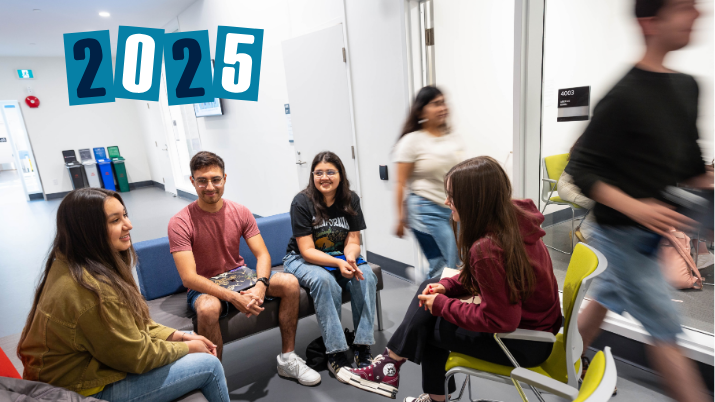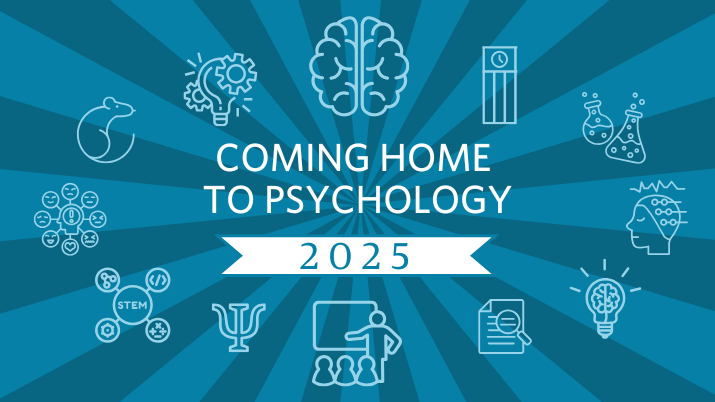The Department of Psychology hosted Dr. Barbara Landau, Dick and Lydia Todd Professor of Cognitive Science at the Johns Hopkins University, as guest speaker at our annual Quinn Memorial Lecture. Dr. Landau is interested in human knowledge of language and space, and the relationships between these two foundational systems of knowledge.
TITLE
Geometry and function in spatial terms: Core and More
ABSTRACT
Theories of the meanings of spatial terms often focus on geometric properties of objects and locations as the key to understanding meaning. For example, “The cat is on the mat” might engage geometric properties characterizing the figure (‘cat’, a point) and the ground (‘mat’, a plane) as well as the geometric relationship between the two objects (‘on’, coincidence). However other theorists have argued that geometric properties are far from sufficient to capture the meanings of many spatial terms, and that instead, functional, force-dynamic properties of objects (e.g. support, containment) are crucial to spatial term meanings. In this talk, I will argue that both approaches are necessary to understanding the variety of spatial terms that appear in language. To do this, I will introduce two new divisions of labor within English spatial prepositions. The first is a division between ‘geometric’ spatial terms in English (including above/below, left/right, north/south/east/west) and ‘functional’ or ‘force-dynamic’ terms (including in, on, and others), with each set of terms drawing on quite different kinds of properties. The second division of labor is within the set of functional/force-dynamic terms; here the ‘core’ exemplars of a category are encoded with the simplest expressions (e.g. ‘is in/is on’) while ’non-core’ exemplars are encoded through use of a rich set of lexical verbs that help specify the particular kind of force-dynamic properties engaged. The division between geometric and functional/ force-dynamic terms has many consequences, including the ease of acquisition of each type in first or second language acquisition, the extent and kind of cross-linguistic variation fro each type, and possibly the neural substrate underlying the two types.
THE SPEAKER


In thinking about these questions, Dr. Landau’s research draws on a variety of approaches, including traditional experimental and linguistic methods adapted for young children. Although much of her work concerns the mechanisms of normal development, she is also interested in unusual cases of development, which can shed light on normal development and cognition. For example, studies of congenitally blind children can shed light on the relationship between perception and language; studies of people with Williams syndrome (a genetic deficit associated with deletion of 25 genes on chromosome 7) can shed light on the effects of genetic deletion on spatial organization and language learning, and studies of spatial representation in individuals who have sustained perinatal stroke can reveal the brain’s organizational and developmental principles for space compared to language. More generally, these cases of unusual development afford the opportunity to think about the relationships among genes, the developing brain, and cognition.
EVENT DETAILS
October 11, 2023
Registration: 4:30 – 5:00 pm PST (if attending in-person)
Lecture and Q&A: 5:00 – 6:30 pm PST
Reception: 6:30 – 7:30 pm PST (if attending in-person)
There will be light appetizers and a cash bar at the reception.
Location
Robert H. Lee Alumni Centre
Lecture: Jack Poole Hall (2nd Floor) | Reception: Wong-Trainor Welcome Centre (1st Floor)
6163 University Boulevard | Vancouver BC
Map, parking, and accessibility information
ABOUT THE QUINN MEMORIAL LECTURE
The annual Quinn Memorial Lecture brings together the UBC Psychology community and friends for an evening of dialogue and a chance to learn first-hand about some of the most innovative psychology research from renowned experts. The lecture is made possible by a generous gift to our department from prominent alumnus, Dr. Michael J. Quinn (1927-2004). Learn more.
ACCESSIBILITY
We strive to host inclusive, accessible events that enable all individuals to engage fully. To be respectful of those with allergies and environmental sensitivities, we ask that you please refrain from wearing strong fragrances. To request an accommodation or for inquiries about accessibility, please contact the Psychology communications team at: comm.web[at]psych.ubc.ca
We acknowledge that UBC’s Vancouver Point Grey campus is situated on the traditional, ancestral, unceded territory of the xʷməθkʷəy̓əm (Musqueam). We also acknowledge that people may join this event virtually from many places, near and far, and acknowledge the traditional owners and caretakers of those lands.

